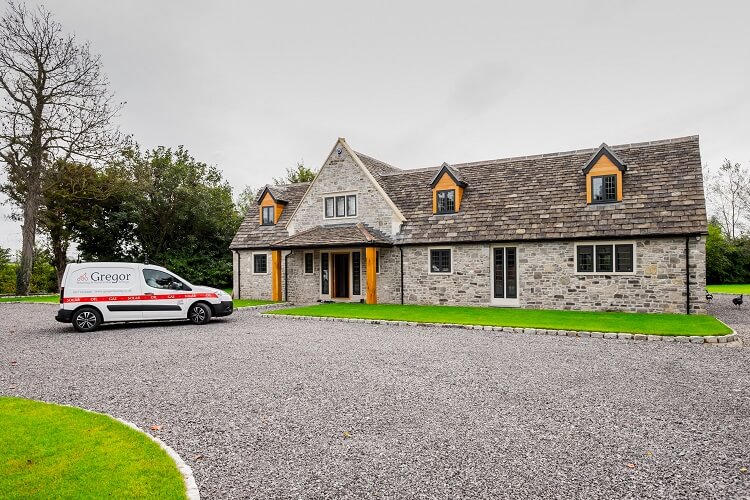
We are currently sharing the pros and cons of different heating technologies for the home.
Today we focus on heat pumps!
There are two types of heat pumps that use either the air or the ground as their source of energy and both maximise the efficiency of your home heating system.
Ground source heat pumps use the natural energy from the ground for home central heating while air-to-water pumps use heat in the air to deliver your home’s heating and hot water needs.
If the term is completely new to you, heat pumps, in the simplest terms move heat from one place to another using just a small amount of energy. They use a compressor and a circulation on liquid or gas refrigerant. Through this, heat is extracted from outside sources and pumped indoors.
One fantastic benefit of heat pumps is they make use of renewable energy sources while reducing your carbon footprint.
At Gregor Heating, we are proud to be at the forefront of this energy efficient technology and are happy to advise and install these systems for our customers. There is a full repair and maintenance service for Air Source Heat Pumps, Ground Source Heat Pumps and Solar Thermal Systems. Our team can also service all leading makes and models including Worcester, Daikin, Mitsubishi and Vaillant.
We’re also often asked many questions around heat pumps such as:
• Are they difficult to install?
• Will a heat pump save me money?
• Are they noisy and hard to maintain?
The list goes on. So today, we’re going to delve into the advantages and disadvantages of heat pumps.
So, here are the Pros.
Efficient and lower running costs.
Yes, choosing a heat pump can be a hefty investment, but an environmentally friendly investment one at that. Heat pumps are actually cheaper and very importantly, safer to run than combustion-based systems.
Well designed and installed heat pumps will attain more than 300% efficiency potentially offering attractive savings compared to the existing system it is replacing.
Long lifespan – reliable and steady source of heat
When you invest in heat pumps you’re choosing a technology for the long term.
Typically the average lifespan of a ground source or air to water heat pump is between 20 – 25 years as long as it is regularly serviced. This should give you an idea of the long-term investment value.
Less maintenance
A lot less maintenance is required on heat pumps than the standard combustion heating systems. That said, it is still good practice to ask a professional installer to undertake a service check on an annual basis.
RHI scheme
There is financial help from the Government to assist with renewable heat systems. Under the banner of the Renewable Heat Incentive (RHI) scheme, homeowners, social and private landlords and self-builders can apply under the Domestic Renewable Heat Incentive for regular payments.
The commercial sector such as industrial buildings, businesses and other commercial organisations can go through the Non-Domestic Renewable Het Incentive.
Clean Energy and Green!
As mentioned, heat pumps make use of renewable energy sources while reducing your carbon footprint. Although they do need electricity to run, the heat extracted from the ground, water or air is continuously renewed naturally.
…and the Cons
Higher upfront cost
There is, of course, a cost to getting an efficient and green energy system. The upfront costs can be slightly higher than say a new oil boiler and oil tank, however, the long-term savings on energy bills should negate the cost in the long term.
Tricky to install
Heat pumps can be difficult to install and research might be needed to understand the movement of heat, local geology (if installing ground heat pumps) as well as the household heating requirements. However, with experts like Gregor Heating & Renewable Energy on your side, the pain can be greatly reduced.
Significant work/disruption
There may well be significant disruption to your property when the work is being carried out (especially if installing ground source), so this should be taken into consideration.
Planning permission
Special planning permissions are needed if you live in Wales and Northern Ireland, whilst in England and Scotland, it depends on your location and size of your property.
Property Insulation
The most important requirement before you consider installing a heatpump is the insulation levels within your property. For heatpumps to tick all the boxes efficiency wise, it is imperative that the home is well insulated with double glazing, cavity wall insulation and a decent level of roof insulation being a must.

